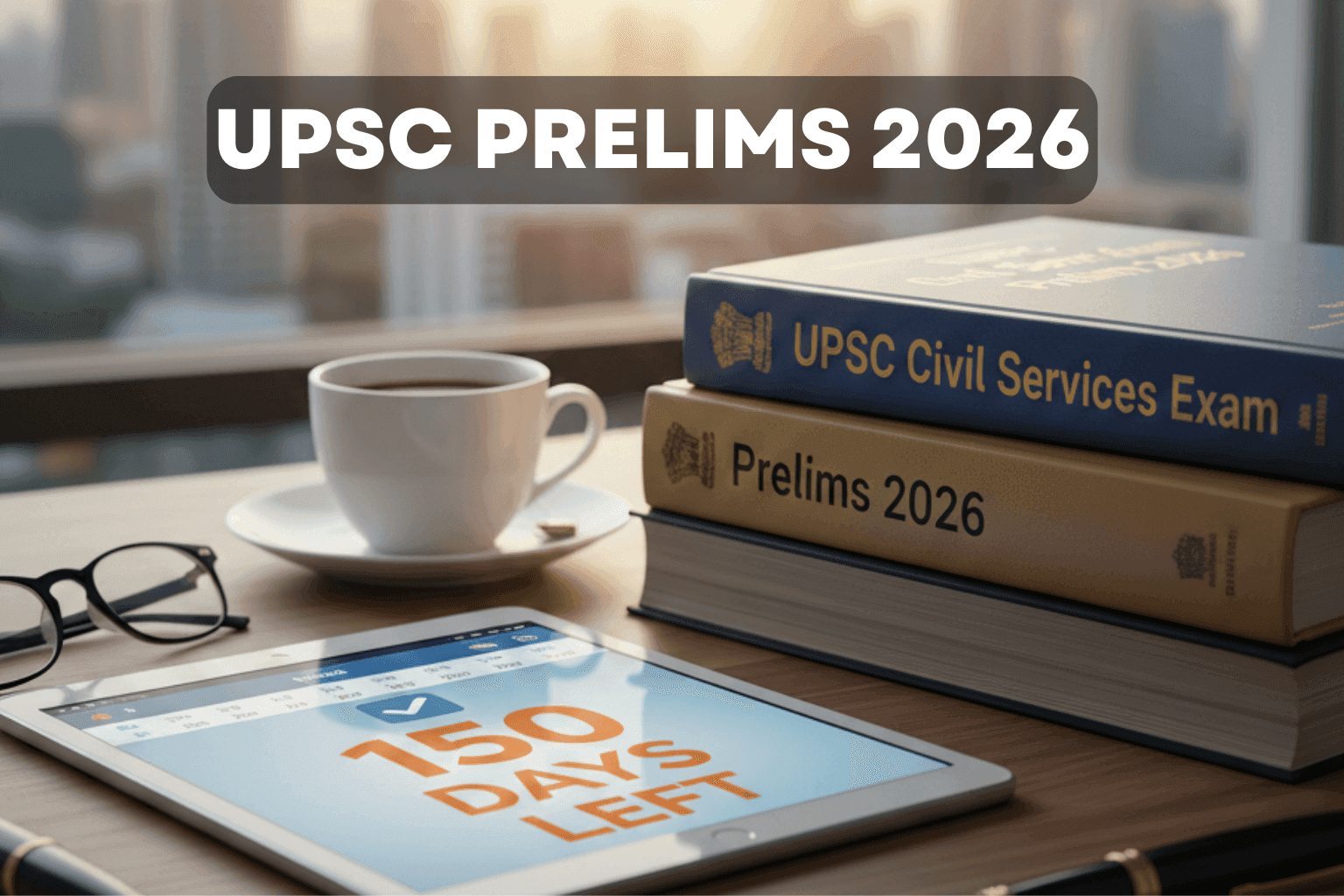How to clear UPSC in first attempt?
Feb, 2025
•2 min read
Clearing the UPSC CSE in your first attempt may seem like a daunting challenge, but with the right approach, it is entirely possible. The key lies in strategic planning, dedication, and focused consistency. Here’s a guide that focuses on essential actions that can pave the way to success, even with limited resources.
Understand the Syllabus and PYQs
Before diving into textbooks, get a clear understanding of the syllabus and Previous Year Questions (PYQs). Knowing the exam pattern and frequently asked topics will help you focus your efforts where they matter most. Avoid becoming overwhelmed by unrelated information.
Self-Study as Your Primary Resource
While coaching classes can be helpful, self-study is your best friend. Supplement your resources with self-study and focus on quality over quantity. Use limited resources wisely—NCERTs, standard books, and class notes can serve as strong foundational material.
Multiple Revisions Are Key
The UPSC syllabus is vast, and memorization alone won’t help. What matters is multiple revisions of the core material. Each revision solidifies your understanding and improves recall. Create concise notes to make your revision process faster and more effective.
Mock Tests: Practice Makes Perfect
Take mock tests regularly to simulate exam conditions. Mock tests are invaluable for assessing your preparation and improving your time management. Review your results, work on weak areas, and repeat the tests until you’ve mastered the content. Check SuperKalam prelims test series here.
Review Progress and Work on Mistakes
It’s essential to track your progress regularly. Identify patterns in your mistakes, and focus on improving them. This reflective approach can help you fine-tune your strategies for the real exam.
Prioritize UPSC Preparation
Treat UPSC preparation as your top priority. Avoid distractions—be it social events, unnecessary debates, or irrelevant study material. Commit to your schedule and maintain discipline in your approach.
Critical Analysis for Intuition
Understanding topics deeply is important. Don't just memorize facts—engage in critical analysis of the material. It will not only improve your understanding but also help you develop an intuitive grasp of complex issues, which is critical throughout all the stages of the examination process.
Consistency Over Intensity
It’s not about how many hours you study; it’s about consistent study each day. A balanced routine with regular breaks is more effective than long, irregular sessions that lead to burnout.
Don’t Ignore CSAT and Language Papers
While the General Studies papers are crucial, CSAT for Prelims and the language papers for Mains are often underestimated. Work on these early to avoid surprises, especially since CSAT has qualifying marks.
Be Disciplined, Not an Encyclopedia
Avoid the trap of trying to know everything. Stay disciplined and focus on completing your set targets each day. The goal is understanding the concepts, not becoming an encyclopedia of information.
Commitment & Dedication
UPSC preparation requires long-term commitment. Every day might not bring immediate results, but dedication to the process, even when faced with challenges, is what separates successful candidates from the rest.
Conclusion
The journey to UPSC success in your first attempt is challenging, but by focusing on key areas like targeted study, self-assessment, and critical analysis, you can maximize your chances. It’s not just about how many hours you put in; it’s about how effectively you use your time, your focus, and your commitment to consistently meet targets and revise key concepts. Stay focused, stay disciplined, and remember, success is a by-product of consistent effort.


